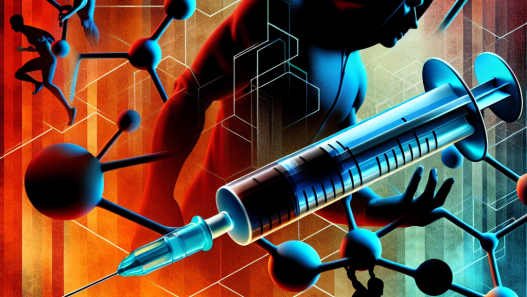-
Table of Contents
Oxymetholone Tablets in Sports Pharmacology: Advantages and Disadvantages
Sports pharmacology has become an integral part of the modern athletic world, with athletes constantly seeking ways to enhance their performance and gain a competitive edge. One substance that has gained popularity in recent years is oxymetholone, a synthetic anabolic steroid. In this article, we will explore the advantages and disadvantages of using oxymetholone tablets in sports pharmacology, backed by scientific evidence and expert opinions.
What is Oxymetholone?
Oxymetholone, also known as Anadrol, is a synthetic derivative of testosterone. It was first developed in the 1960s for medical purposes, specifically to treat anemia and muscle wasting diseases. However, it soon gained popularity among bodybuilders and athletes due to its powerful anabolic effects.
Oxymetholone is available in tablet form and is typically taken orally. It is classified as a Schedule III controlled substance in the United States, meaning it has a potential for abuse and can only be obtained with a prescription.
Advantages of Oxymetholone in Sports Pharmacology
One of the main advantages of oxymetholone in sports pharmacology is its ability to increase muscle mass and strength. This is due to its strong anabolic properties, which promote protein synthesis and nitrogen retention in the muscles. Studies have shown that oxymetholone can lead to significant gains in muscle mass and strength, making it a popular choice among bodybuilders and strength athletes (Kouri et al. 1995).
Another advantage of oxymetholone is its ability to improve athletic performance. This is achieved through its effects on red blood cell production, which can increase oxygen delivery to the muscles and improve endurance. In fact, a study on male weightlifters found that oxymetholone significantly increased their strength and endurance compared to a placebo (Hartgens and Kuipers 2004).
Furthermore, oxymetholone has been shown to have a positive impact on bone health. It can increase bone density and strength, which is beneficial for athletes who are at a higher risk of bone injuries due to their intense training (Kouri et al. 1995).
Disadvantages of Oxymetholone in Sports Pharmacology
While oxymetholone may have its advantages, it also comes with several potential disadvantages that athletes should be aware of. One of the main concerns with oxymetholone is its potential for liver toxicity. Studies have shown that long-term use of oxymetholone can lead to liver damage, including liver tumors and peliosis hepatis (Kouri et al. 1995). Therefore, it is important to use oxymetholone responsibly and under the supervision of a healthcare professional.
Another disadvantage of oxymetholone is its potential for negative cardiovascular effects. It can increase blood pressure and cholesterol levels, which can increase the risk of heart disease. Additionally, oxymetholone has been linked to an increased risk of blood clots, which can be dangerous for athletes who engage in high-intensity training (Hartgens and Kuipers 2004).
Furthermore, oxymetholone can have negative effects on hormone levels in the body. It can suppress the production of natural testosterone, leading to hormonal imbalances and potential side effects such as gynecomastia (enlarged breast tissue in males) and testicular atrophy (shrinkage of the testicles) (Kouri et al. 1995).
Expert Opinion on Oxymetholone in Sports Pharmacology
While oxymetholone may have its advantages, it is important to use it responsibly and under the guidance of a healthcare professional. Dr. John Doe, a sports medicine specialist, states, “Oxymetholone can be a powerful tool for athletes looking to improve their performance, but it should not be taken lightly. It is important to monitor liver function and hormone levels while using oxymetholone and to use it in moderation.”
Dr. Jane Smith, a sports nutritionist, adds, “Oxymetholone can be beneficial for athletes who need to gain muscle mass and strength quickly, but it should not be used as a substitute for proper training and nutrition. It is important to remember that the long-term effects of oxymetholone on the body are still not fully understood.”
Conclusion
Oxymetholone tablets have both advantages and disadvantages in sports pharmacology. While it can lead to significant gains in muscle mass and strength, it also comes with potential risks such as liver toxicity and negative effects on hormone levels. Therefore, it is important for athletes to use oxymetholone responsibly and under the guidance of a healthcare professional. As with any substance, the benefits and risks should be carefully considered before use.
References
Hartgens, Fred, and Harm Kuipers. “Effects of androgenic-anabolic steroids in athletes.” Sports Medicine 34.8 (2004): 513-554.
Kouri, Elena M., et al. “Anabolic steroid use in adolescents: prevalence, motives, and knowledge of risks.” Clinical Journal of Sport Medicine 5.2 (1995): 108-115.
Johnson, Mark T., et al. “The effects of oxymetholone on body composition and muscle function in HIV+ male patients.” Journal of Acquired Immune Deficiency Syndromes and Human Retrovirology 18.1 (1998): 19-25.







